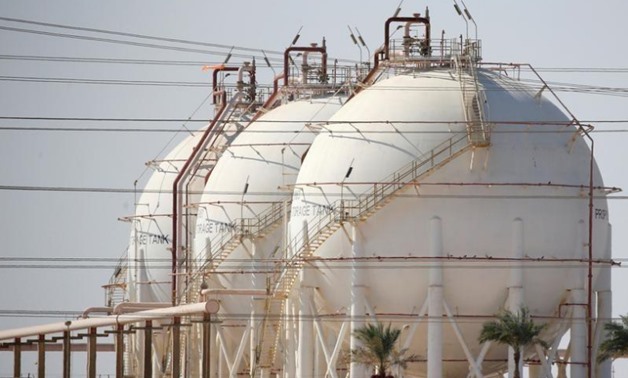
A plant's gas tanks are seen at the desert road of Suez city north of Cairo, Egypt August 14, 2016. REUTERS/Amr Abdallah Dalsh
CAIRO – 19 February 2018: Around 64 BCM of natural gas from Israel’s Tamar and Leviathan reservoirs will be exported to private Egyptian company Dolphinus for over a decade for $15 billion, according to a Monday statement by Delek Drilling, one of the two companies leading gas projects in the reservoirs.
An Egyptian government official told Reuters the deal does not entail that Cairo will import natural gas; rather, “international private companies will import gas from abroad in the framework of their own needs, and will liquefy and export them again.”
Egypt is planning to acquire self-sufficiency in gas in 2018 with the Zohr gas field and other fields in the Egyptian Mediterranean and the Delta, and turn into a major exporter of its own.
On Feb. 13, the Egyptian cabinet issued the executive statute of a law issued in September 2017 to regulate the gas market, allowing private companies to operate in the field. The agreement awaits prerequisite regulatory and government approvals in both countries, according to the contract. The gas price will be based on a price formula linked to the Brent oil barrel prices.
The means of supply is still being studied; hence, the date of transmission has not yet been determined. Possible options are the East Mediterranean Gas Company’s pipeline from Arish to Ashkelon, which has repeatedly been attacked, and the Jordanian-Israeli pipeline.
However, the agreement stipulates that the supply will continue until 2030, or until the 64 BCM have been fulfilled, whichever is sooner.
“The export deals establish Egypt’s status as a regional energy center, which allows the supply of gas both to the Egyptian domestic market and for export,” said Yossi Abu, CEO of Delek Drilling.
“Concurrently with the implementation of the transactions, we are continuing to promote additional agreements,” Abu added in the statement.
“This is the first time since the signing of peace treaties in the Middle East that such significant deals between the countries have been signed,” Israeli Energy Minister Yuval Steinitz said in a statement, adding that the agreement “is expected to strengthen bilateral relations.”

Comments
Leave a Comment